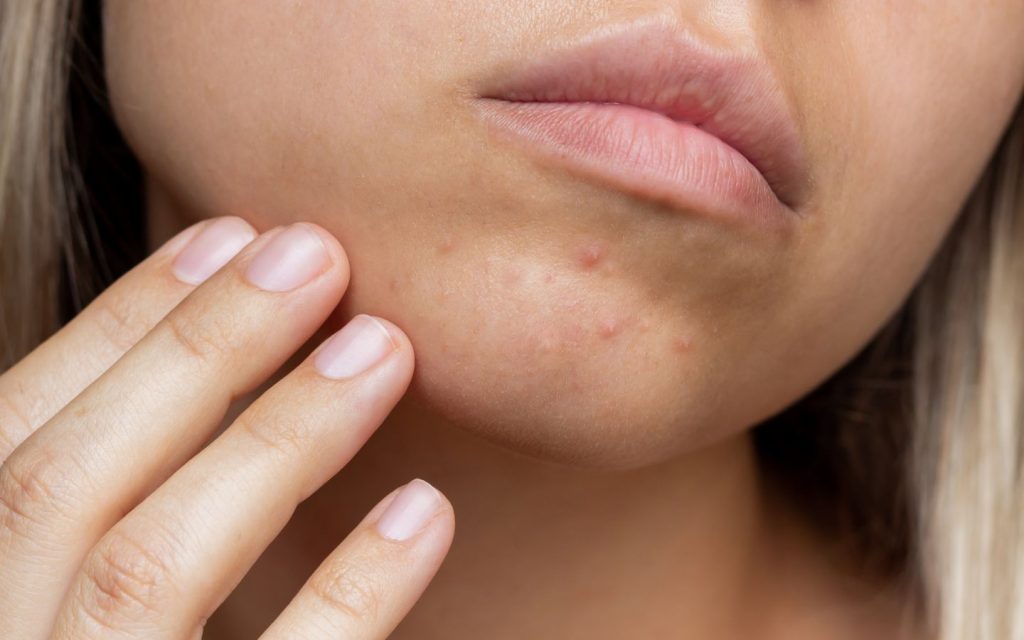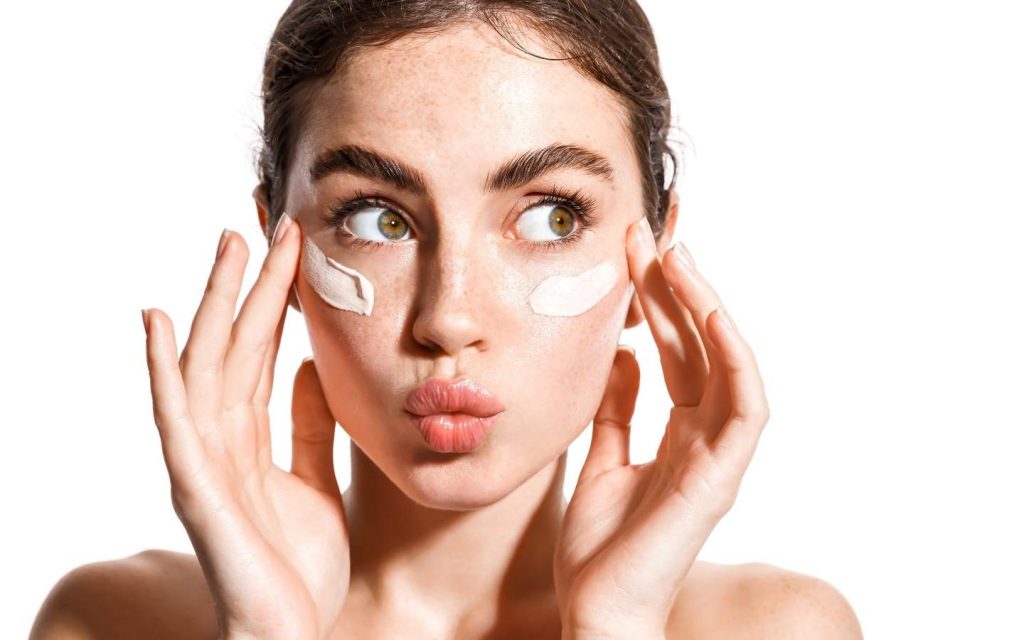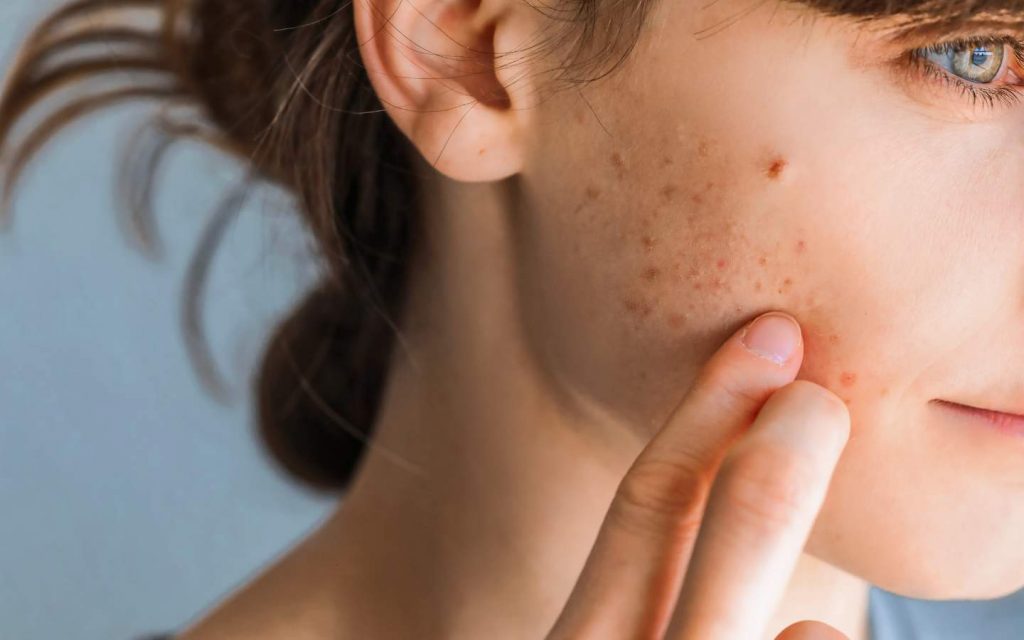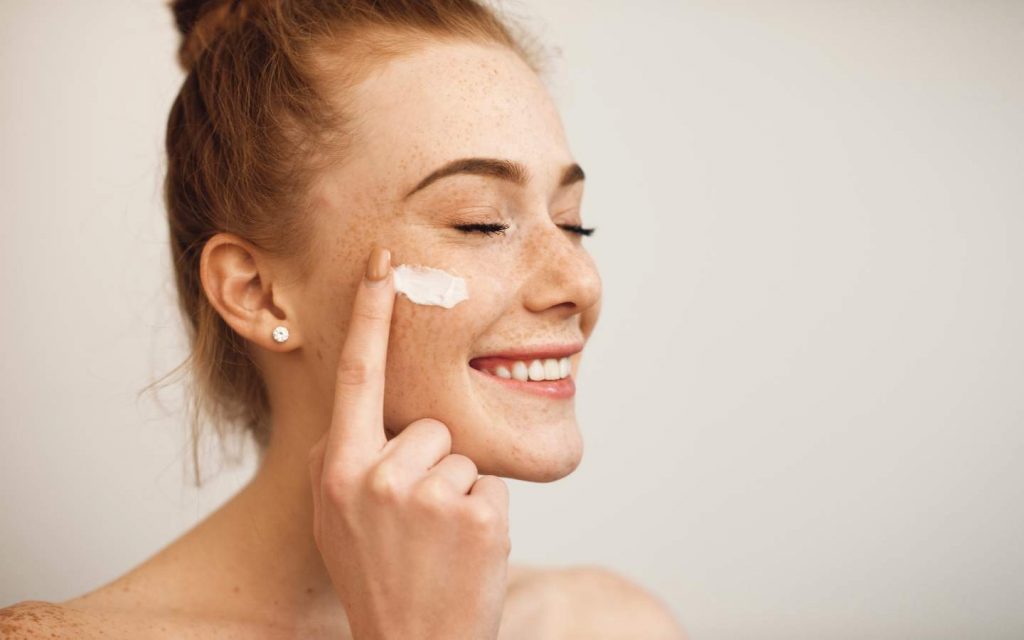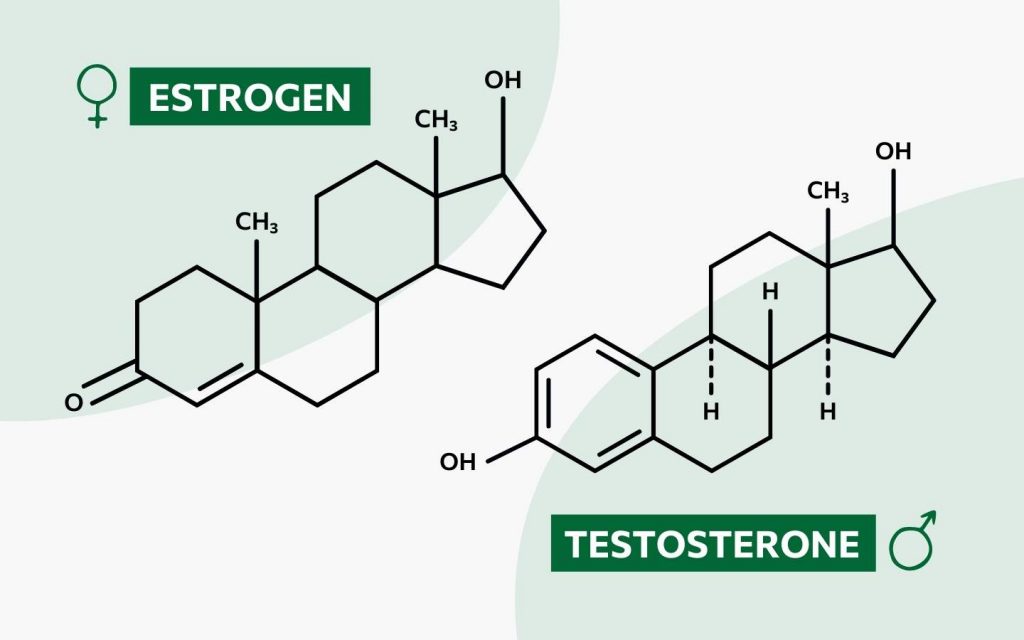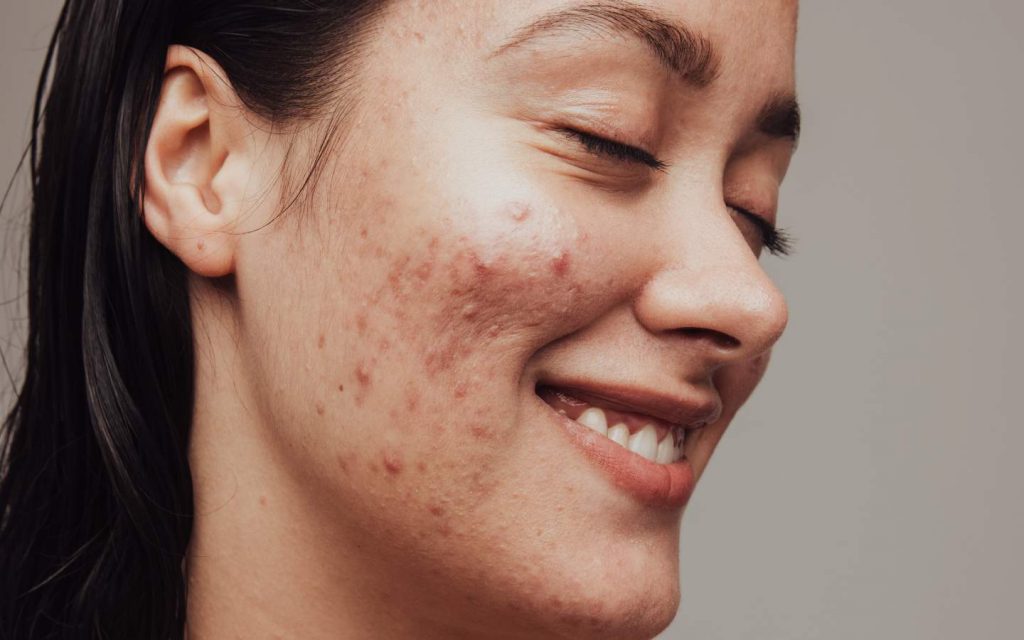


This article has been reviewed by:
Alexandra Beck
Cosmetician
During pregnancy, the body of the expectant mother changes. This development has already given rise to numerous myths: one myth states that women who blossom and become prettier during pregnancy give birth to a boy. Girls, on the other hand, are said to take away the beauty of the expectant mother. Although this cannot be scientifically proven, it is noticeable that some expectant mothers exhibit a real “baby glow.” Their skin looks radiant, smoothed and refreshed. Other pregnant women, however, get blemished skin and, in the worst case, real acne. Below, we want to provide some clarity on the topic of blemished skin. For example, we answer why only some women get pimples during pregnancy. We also explain what causes pregnancy acne and how to effectively combat it without harming the unborn child.
Causes of pimples during pregnancy
Whether “baby glow” or “pregnancy acne,” the cause lies in the hormonal fluctuations that expectant mothers go through.
During pregnancy, male hormones, so-called androgens, are increasingly released. These promote faster growth of horny cells and increase the activity of the sebaceous glands.
The excessively produced skin oil clogs the pores. Together with the skin flakes, it provides the perfect basis for bacteria to multiply. The accumulation of bacteria promotes inflammation and painful pimples develop. Skin irritations and impurities occur more frequently in the first trimester of pregnancy and develop regardless of whether the expectant mother has had similar skin problems in the past.
The good news in advance: With the normalization of the hormone balance, after pregnancy and during breastfeeding, pregnancy acne usually disappears again all by itself.
Why pimples during pregnancy do not occur on every pregnant woman?
Every body is individual, this is particularly well illustrated by this example: the amount of androgens secreted during pregnancy and the sensitivity of the sebaceous glands to these hormonal fluctuations differs from woman to woman. If the expectant mother secretes comparatively few hormones or the sebaceous glands have a high tolerance to the hormones, she will be spared pregnancy acne.
How to fight pimples during pregnancy?
There’s nothing you can do about the hormonal fluctuations in your body. But with the right skin care, you can get the increased sebum production under control and alleviate the symptoms of pregnancy acne.
To steadily improve the skin’s appearance and prevent pimple marks, you should follow a consistent skin care routine.
But be careful: During pregnancy, the skin is particularly sensitive. Your skin care should be optimally tailored to the needs of your skin in this special stage of life.
7 tips for skin care during pregnancy
- Avoid products based on fat or oil. Due to hormonal changes, the oil content of the skin is already increased.
- Cleanse your skin morning and night with a mild, pH-neutral cleanser.
- Then use a mild and moisturizing cream or lotion for blemished skin.
- Apply an exfoliating scrub 1 to 2 times a week. It unclogs pores and helps your skin drain excess sebum better.
- Gently blot your skin after cleansing, rather than rubbing it dry, so as not to further irritate it.
- Don’t squeeze out pimples – this can lead to inflammation and scarring. On the other hand, professional cleansing by a beautician is recommended.
- Sun protection on a daily basis saves your sensitive skin from pigment spots and additional stress.
You should avoid these ingredients for the treatment of pimples during pregnancy
With acne or medical products, it is especially important that you seek advice from your doctor and midwife. Many ingredients can harm you and your unborn child.
The following ingredients have been shown not to be used in pregnancy or are suspected of harming your unborn child.

Critical ingredients in personal care products & medications:
- Doxycycline
- Isotretinoin
- Minocycline Tetracyclines
- Retinol
Harmful active ingredients in exfoliants:
- Salicylic acid
- Trichloroacetic acid
- Phenol
More tips against pimples during pregnancy
Neben den Hormonen und der Hautpflege bestimmen viele weitere Faktoren Ihr Hautbild. Die nachfolgenden Tipps wirken sich nicht nur auf Ihr Hautbild, sondern auf Ihre gesamte Gesundheit positiv aus:
Eat as healthy and balanced a diet as possible to support your skin from the inside out. By eating foods high in vitamin C, E and biotin, you’ll boost your skin’s renewal and healing processes. Avoiding certain foods can also contribute to a beautiful complexion. For example, did you know that milk contains hormones that promote blemished skin? Fast food and sweets have also been shown to have a negative effect on the skin. If you want to learn more about nutrition for blemished skin, read this article.
Make sure you relax and rest. Give yourself and your skin a break from baby stress here and there. Whether it’s steam baths or visits to a beautician – create moments for yourself where you consciously relax. This also includes regular and sufficient sleep. During sleep you give your body time to regenerate, it is not called beauty sleep for nothing.
Drink enough! If you drink enough fluids, important nutrients are transported to the cells and toxins are transported out of them. Quench your thirst best with water and unsweetened teas to keep your fluid balance in check. The recommended amount of fluid for pregnant women is at least one and a half liters per day.
Seek advice from your midwife, gynecologist or esthetician. Every body reacts differently to pregnancy, so it is important to seek professional advice if you have any problems or uncertainties.
![]()
